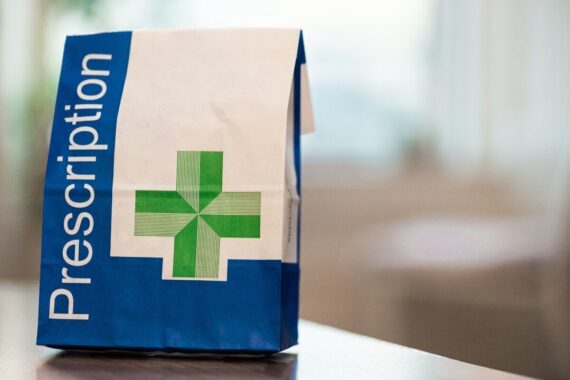No increase in unsafe prescribing by GPs during Covid pandemic, finds study

There was no increase in unsafe prescribing by GPs in the pandemic despite significant disruption to services, a large analysis has found.
Analysis of health records from 57 million patients between September 2019 and September 2021 found that on 13 potentially hazardous medication measures there was no evidence to suggest prescribing was less safe.
The only difference found was some delays in blood test monitoring for some medications including ACE inhibitors but this was temporary and all had recovered by September 2021, the research teams at Nottingham and Oxford Universities found.
Writing in BMJ Medicine, the team said their analysis of monthly data through the PINCER tool which monitors compliance with safe prescribing of medicines that require close monitoring or which can cause harm such as gastrointestinal bleed, showed no decline as a result of the pandemic.
The data showed the proportion of patients flagged as being potentially at harm remained in the same range throughout with 3.1% of patients overall at risk of at least one ‘potentially hazardous prescribing event.
Yet the pandemic had seen a 30% reduction in GP consultations, a 74% reduction in routine referrals and a 43% reduction in urgent cancer referrals, the researchers said.
It is the first time that disruption to safe prescribing in the pandemic has been looked at and the dataset covers 95% of the population in England, they added.
The 13 indicators included in PINCER include prescribing of oral NSAID without an ulcer healing drug in patients over 65, non-selective beta blocker in a patient with asthma, and methotrexate in people who have not had a record full blood count and liver function test.
Variation seen in the blood test monitoring indicators might partly be due how clinicians prioritised urgent work in the pandemic, they noted.
Previous research from the same team has shown one in 20 patients being given a prescription that should have been avoided because it could worsen their conditions or interact with other medicines.
Dr Sarah Rodgers, PRIMIS Head of Research Services, said: ‘Despite all the challenges that general practice faced during the Covid-19 pandemic, prescribing safety obviously remained high on the agenda.
‘These findings are testament to the hard work and dedication of the pharmacists, pharmacy technicians and GPs working in primary care during this time.’
Pulse July survey
Take our July 2025 survey to potentially win £1.000 worth of tokens

Visit Pulse Reference for details on 140 symptoms, including easily searchable symptoms and categories, offering you a free platform to check symptoms and receive potential diagnoses during consultations.
Related Articles
READERS' COMMENTS [3]
Please note, only GPs are permitted to add comments to articles












I like all the hard effort of pharmacists, pharmacy technicians and GPs in that order. When you consciously ignore a warning like indapamide and amlodipine may cause hypotension I wonder if their systems captures that as an event? I spend more time dealing with lack of availability than errors in prescribing.
Yet chemists are free to prescribe ‘dieting’ injections, in patients with raised LFTS (where it is contraindicated)
Who flags that up?
That is quite something, when you consider there must have been a huge decrease in ‘other unsafe prescribing’ to counter the effect of inavailability of test tubes which caused many patients to go beyond their safe monitoring time limits at one point, and various other issues at other times.
Indeed, one certain ‘newspaper’ reported that GP surgeries had been closed completely for over 9 months during the pandemic, so I preesume none of those surgeries patients had any blood tests or Bp monitoring done for 3 years?